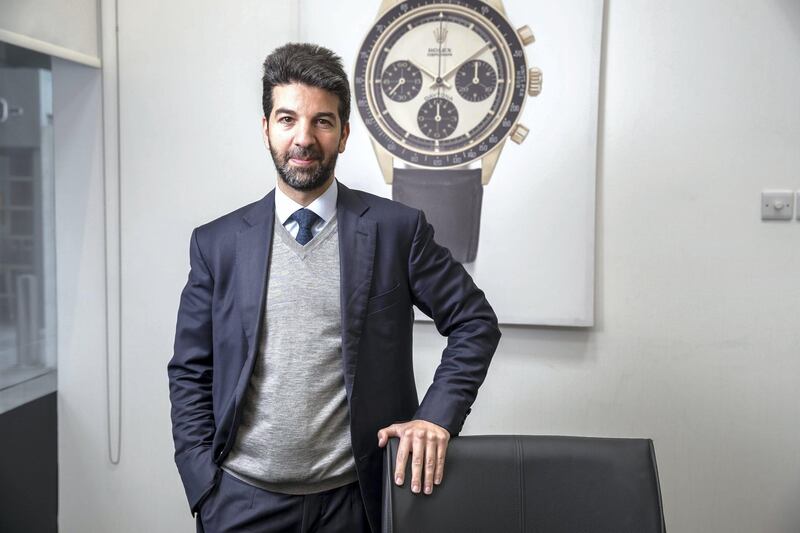Michael Jeha, managing director of Christie’s Middle East, talks about the outlook for the region's art scene.
How buoyant is the Middle East art scene?
Overall it was a very strong year for the Middle East, with Europe and the Middle East together accounting for $2bn of Christie’s $6.6bn of global sales in 2017. Tastes in the region are maturing and becoming more selective. It’s become clearer who the leading regionals artists are and collectors are focusing on those accordingly. This greater selectivity is a sign of a maturing market. In general, the art scene has strengthened considerably in the region over the last 10 years. There are more galleries than ever before and we’re seeing the rise of dedicated art areas like D3 and Al Quoz in Dubai, which are becoming a hub for the arts. In Abu Dhabi there is the Louvre, which is extremely important, and I think that will make a big impact long term.
What does the acquisition of Leonardo da Vinci’s Salvator Mundi mean for Louvre Abu Dhabi?
The Da Vinci is the most expensive artwork ever sold and it is great that it will be on public display at the Louvre. It will increase public appetite and enthusiasm for art because a work by Da Vinci pulls in the crowds. We saw this when it was on display in London and elsewhere, there were queues around the block. I think over two million people watched the auction online, on Facebook it attracted another five million. So it being at the Louvre is extremely positive for the UAE. What’s more, the museum itself is architecturally stunning and well curated. They’re promoting this theme of how civilisations around the world are very much connected, and the collection is very strong. They’ve purchased many wonderful objects and I’m sure they’ll continue to do so.
Who are the leading regional artists?
In the modern category it's become clear who the leaders are; on the contemporary, side, it's still emerging and will change over time. In Egypt, we have the likes of Mahmoud Said, who is considered the father of modern Egyptian art. In Lebanon there are Paul Guiragossian and Shafic Abboud; in the UAE, Abdul Qader Al Rais, who is considered the father of UAE art.
Will the rising oil price increase the appetite for art?
Positive economic and political sentiment will always help because people feel better. What we see in the Middle East often mirrors what we see around the world. There are similar patterns: as you see sentiment in the world improving, so it happens here, which leads to better results overall and accounts for the 21 per cent growth [in US dollars] that we enjoyed globally last year.
How big a risk does art fraud pose in the region?
You have art forgeries in the Middle East but it’s not something that’s unique to this region. Whenever an art work or an artist can sell for significant sums of money – maybe things will change one day with the development of artificial intelligence, but so long as it’s humans that are painting, selling and authenticating art – it’s human nature and unfortunately some people engage in these activities. I’m not by any means trivialising it, but I see nothing different here to what I see around the rest of the world.
What do you make of digital art galleries such as Google’s Arts & Culture?
These kinds of initiatives or products are complementary and good for the art market – they will help to make it more accessible, which is very important. But I don’t think they’ll replace other forms of art appreciation. I think there’s a role for traditional live auctions, online auctions, online education, live education. I think there’s a role for physical museums, a role for online museums. I don’t sign up to the notion that online is going to make everything else redundant, at least for the foreseeable future.






